RACT says road toll represents a policy failure after 36 killed on roads in 2020
A decade of policy measures aimed at cutting the road toll in Tasmania have been a failure and an urgent rethink is needed, the RACT chief says.
Tasmania
Don't miss out on the headlines from Tasmania. Followed categories will be added to My News.
- Tasmania has had 35 people die on the state’s roads during 2020
- Concerns raised over Tasmania’s road safety as death toll soars
A DECADE of policy measures aimed at cutting the road toll in Tasmania have been a failure and an urgent rethink is needed, the RACT chief says.
Thirty-six people were killed on the state’s roads last year — the equal highest figure since 2009.
RACT CEO Mark Mugnaioni says the outcome shows current policies to improve safety aren’t working.
“It gives me no pleasure in saying this, but when it comes to road safety in Tasmania, we are witnessing a failure in public policy. We must do better. Lives depend on it,” he said.
“That’s not to say that it is entirely the government’s fault.
“The community needs to accept it plays a major part in keeping our roads safe. Taking risks and poor behaviour by some drivers is a recipe for disaster, which makes it incredibly difficult for governments.
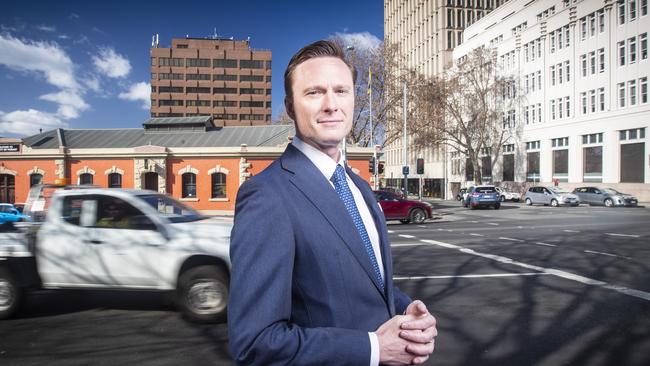
“I am not looking to apportion blame, but rather outline that the RACT wants to collectively find a better way, with fresh thinking to tackle the road toll.
“We simply can’t continue to implement the same strategies and the same way of thinking that has underpinned the strategy over the past ten years and expect to get better results over the next ten years.
“We need to fundamentally rethink our approach to road safety and try and break the paradigm that has seen Tasmania stuck with an unacceptably high road toll.”
Infrastructure and Transport Minister Michael Ferguson agreed fresh thinking was needed.
“Road safety needs a multifaceted approach, which includes maintenance and infrastructure, law enforcement, safety campaigns and community responsibility.
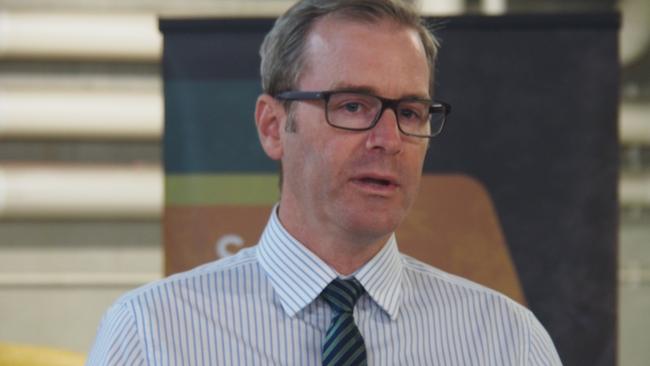
“Furthermore, I believe that we need to look at news ways to approach road safety, such as smart technology becoming available to identify those drivers who are doing risky things, including driving too fast or going through a red light.
“There are also mobile cameras that have been trialled in NSW that can detect somebody using a mobile phone in their car, which we are investigating.”
He said the government took road safety policy from Road Safety Advisory Committee, of which RACT was a member.
Labor’s Infrastructure spokesman Shane Broad agreed said the 20202 road toll was “extremely troubling“.
“Clearly the government needs to do more to reduce the road toll including fixing black spots and investing in contemporary road safety campaigns, rather than simply promising massive infrastructure spends that never happen.
“It can’t keep doing what it’s doing and just expecting people to change their driving behaviour.”
POLICE DISAPPOINTED WITH OPERATION CROSSROADS
THE results are in for the extensive annual road safety campaign and Tasmania Police Acting Inspector Justin Dawson has expressed dismay over the sheer volume of recorded “poor driving behaviours”.
Each year Operation Crossroads has cracked down on risk-taking motorists with comprehensive traffic enforcement activities in the hopes of keeping Tasmania’s roads safe during the festive season.
Last year’s operation was a success with zero road deaths from December 21 2019 to January 1 2020, but the same can’t be said for the period one year later.
One person died and nine others were seriously injured on our roads during Operation Crossroads.
Sadness rippled through the community after a 14-year-old boy died in a motorbike incident on Christmas Day, making the 2020 road toll of 36 deaths the state’s equal highest in a decade.
Acting Inspector Dawson said more than 870 infringement notices were issued for driving offences during the operation, 795 of which were for speeding offences.
“That’s nearly 800 instances where a driver or rider put themselves and others at risk of serious injury and death on our roads,” he said.
“It’s disappointing to see the number of infringement notices issued over the period and the number of people that were put at risk by poor driver behaviours.”
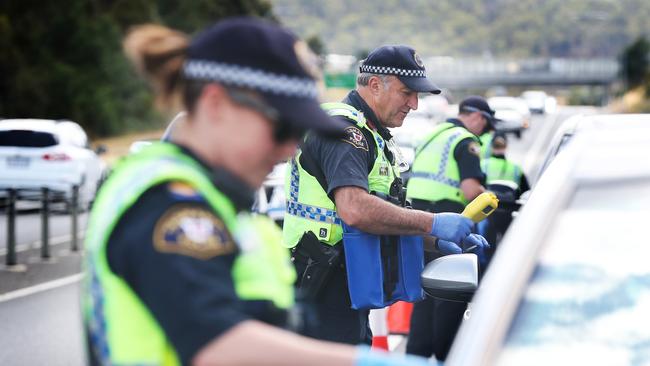
Police conducted 7,693 random drug and alcohol tests, including 172 oral fluid tests, of which 62 were positive.
Forty-five motorists were charged with drink driving offences, 38 received infringement notices for inattentive driving, 25 for mobile phone use and 14 for seat belt offences.
Acting Inspector Dawson warned excessive speed was the largest contributor to fatal and serious crashes, urging everyone to slow down.
“Every death and serious injury on our roads is one too many,” he said.
“It’s timely to remind riders of off-road and recreational vehicles, including trail-bikes and ATV’s, of the importance of wearing appropriate safety gear and riding safely and responsibly.”
“Riders are more vulnerable than drivers and the consequences if they crash can be devastating.”
The “fatal five” factors contributing to serious and fatal crashes are seatbelts, speeding, alcohol and drugs, distractions and fatigue.
36 Tasmanian lives lost on roads in 2020
TASMANIA has recorded its equal-highest road toll in a decade.
Thirty-six people were killed on the state’s roads in 2020 — the highest figure since 2009. The state also recorded 36 fatalities in 2016.
Infrastructure and Transport Minister Michael Ferguson said 283 people suffered serious injuries in road crashes during 20202.
“We’re disappointed to see that we’ve had more fatalities and more serious injuries on Tasmanian roads in 2020,” he said.
“Our fatalities are up by seven compared to the previous year and our serious injuries are up by around 40.
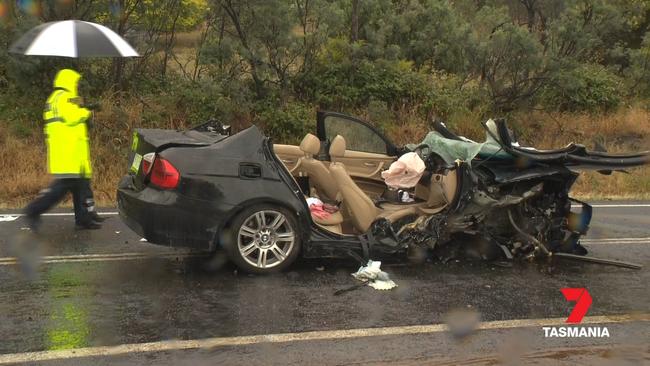
“These are Tasmanians lives, these Tasmanians families who have been affected in a negative way forever as a result of some of the crashes that occurred on Tasmanian roads.
Road deaths in Tasmania have steadily declined from a peak of 130 in 1971. More than 100 people died on the states roads per year until the 1980s.
The introduction of laws requiring seatbelt use and against drink driving, as well as reduced urban speed limits and increased road law enforcement has been credited with contributing to the fall.
The lowest number of deaths in a year was 24 in 2011.
Mr Ferguson said human error was the cause of the vast majority of road deaths.
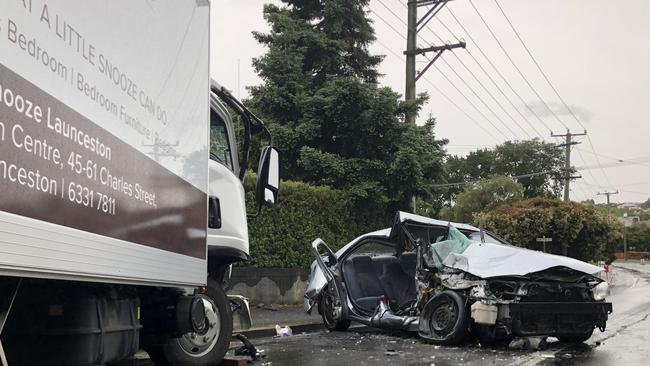
“The Tasmanian Government is committed to keeping Tasmanians safe and is continuing work to change attitudes around speeding, the use of mobile phones when driving, and drink and drug driving,” he said.
“This includes a new anti-drink-driving campaign targeted at young drivers that was recently launched, along with the next stage of the anti-mobile phone use campaign.
“We’re also continuing to invest in making our roads safer with more than $75 million being invested in road safety improvements, to be delivered through our Towards Zero Action Plan 2020-24.”
More than 193,000 Australian have been killed in road crashes since 1925, almost double the number killed in armed conflicts in the nation’s history.



